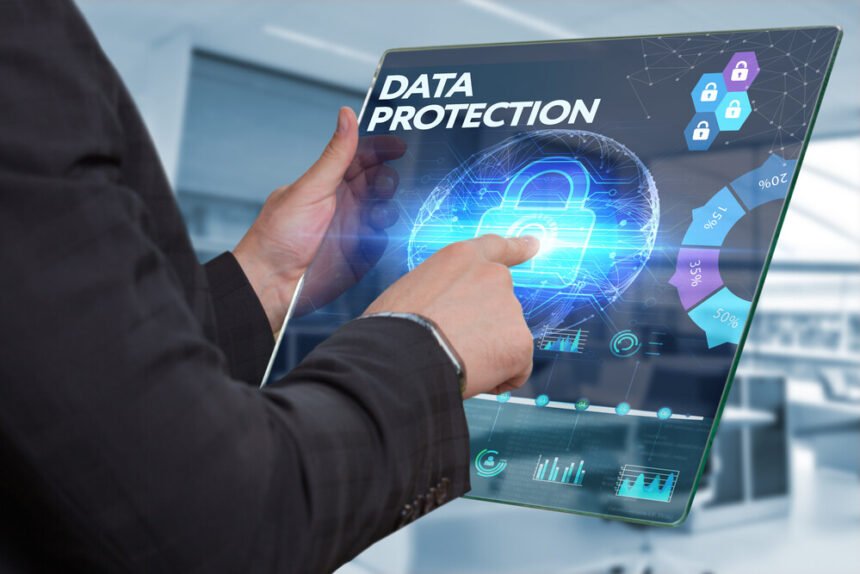During the recent coronavirus pandemic, we’ve been spending more and more time indoors. That makes us do more things on the internet. Some of us who were lucky enough to keep our jobs and work from home are also continually browsing the web.
That might be fun and interesting, but we need to take into account the sheer influx of data that we’re providing to the numerous different web pages. Data protection has been an issue for as long as tracking, cookies, and geo-locating have existed.
Protecting your data on the internet is more critical now than ever, and in these vulnerable times, the last thing we need is a data breach.
How much information do we provide?
You might be telling yourself:
“I’m not a newbie to the internet; I know my way around the web without carelessly giving away my data. “
While you might be right in a sense, you need to keep in mind that long gone are the days where pop up ads and computer viruses were the most significant worries you had when browsing the web. The ways that individuals, websites, and corporations track your data these days are far more sophisticated and masked as harmless parts of a website.
Cookies
Have you ever wondered what cookies are? You’ve been told that the website uses cookies to improve your user experience, and that’s only true to an extent. The truth of the matter is that cookies are pieces of information that log and track your browsing habits.
This information is later provided, sold, and monopolized by corporations who are looking to make targeted advertising campaigns, collect user data, and much more. While this might be harmless in a way, not everyone is so calm about giving out their data.
Geolocation and Tracking
And not all data collection consists of mere browsing data. Some websites will ask to geo-locate you, to again “improve your user experience.” While the geolocation might improve your user experience, ultimately, it’s also going to provide the corporation with your address.
That’ll allow big business to garner quite the amount of information on you, your purchasing habits, your full name, phone number, and quite a lot of things which are in the public record.
Social Media
One of the more innocent pieces of information we gladly give away is social media. You don’t realize how much information you provide when you’re filling out your social media profile. The endless stream of surveys, questionnaires, and pop up questions are all providing information to social media companies.
These companies store and sell this information to corporations which use it for marketing their products, and optimizing existing outcomes to fit better expectations.
What to do about this?
When you’re looking to cut down on the amount of information you provide while you’re browsing the internet, there are a couple of things you can do.
Get the Best VPN on the Market
A VPN is the best proactive solution to any problem, solving it before it has even risen. A VPN will change your IP address allowing websites to track the wrong location and a non-existent person. VPNs are put in place to protect your browsing.
The best VPNs on the market can also protect your information in a multitude of other ways, and provide exciting features such as:
- Top of the line data encryption
- Warning against potential threats
- Fast and optimized browsing
- Strict no-log keeping policies
- Unlimited bandwidth capabilities
Getting a good VPN is the best way to protect your data in these sensitive times.
Take Proper Precautions
Another great way to protect your information when browsing the internet is to take all the proactive precautions to prevent websites from collecting any data. Some reasonable steps you can take to protect yourself are:
- Install an adblocker
- Modify your browser settings to disprove of cookies
- Don’t browse shady websites
- Don’t click on pop up ads
- Use an antivirus software
Think Before you Click
Realize that all of your information is very sensitive, so make sure to avoid providing it as much as you can. You’re inevitably going to meet a pop-up survey or questionnaire about your experience.
Opt to avoid it as well as you can. Even if this information doesn’t seem like much, it’s only a ploy to get more information on your purchasing habits, interests, and personality so that corporations can use it for marketing, optimization, and data collection purposes.
In Conclusion
If you’re worried in the slightest about your online data privacy, you’re going to have to take the proper measures to make sure your data is bulletproof.
The best way to do this is to solicit the use of an excellent VPN service, think before you click, and practice safe internet browsing. And when it comes to the coronavirus, washing your hands and wearing a mask will do! Stay indoors, and remember to browse safely!

